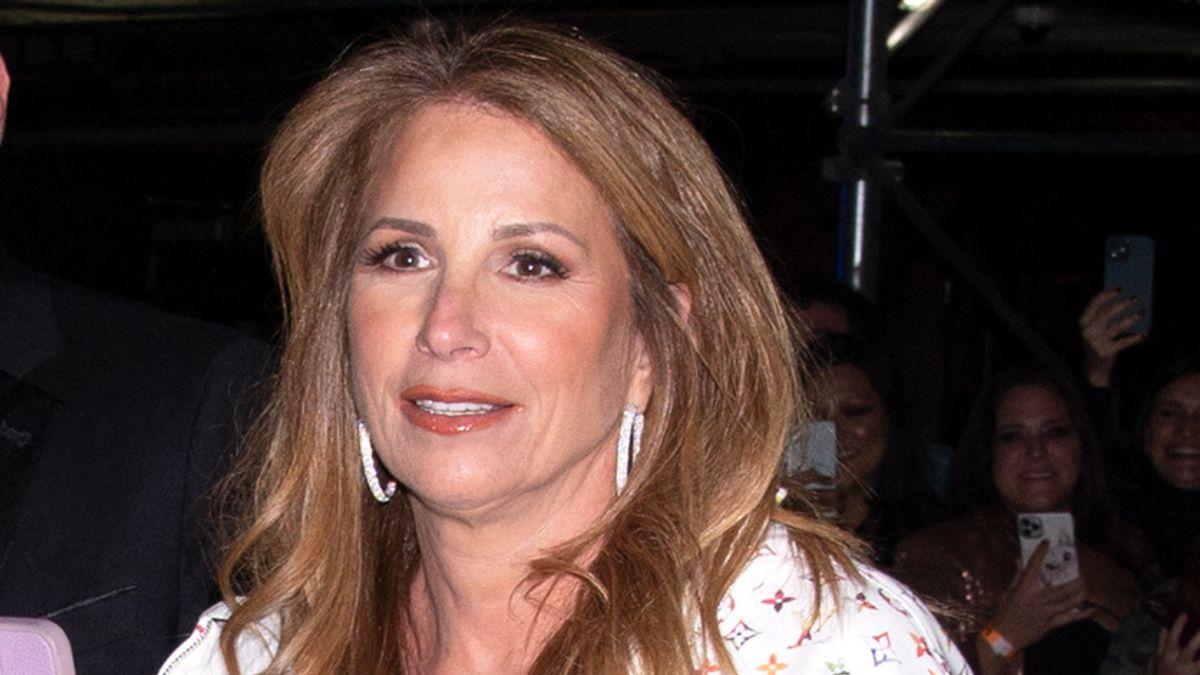LGBT Community Forced Into Sex Work – In Fear For Their Lives – As Taliban Rule Solidifies Across Afghanistan
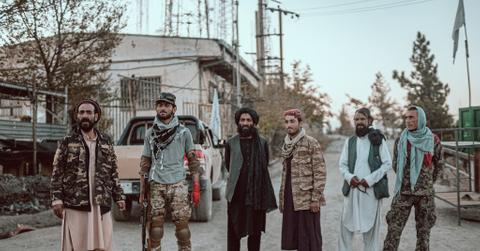
Nov. 29 2021, Published 1:59 p.m. ET
KABUL, Afghanistan – Himmat gazes into the distance, his bright blue eyes burnished by a terrible sadness.
“We are gay boys, but we cannot even share our problems with our families. My father or uncle will kill us. Or the Taliban will kill us,” says the young Afghan – who thinks he is about 21 or 22 and refers to his love Zubair as his wife. “We are humans; we have rights, we have a life to live. But how?”
Homosexuality has long been deemed indecent and taboo in Afghan society. However, the past two decades offered a limited form of human rights protection – which was ripped away as the Taliban assailed to power on the sultry Sunday afternoon of August 15.
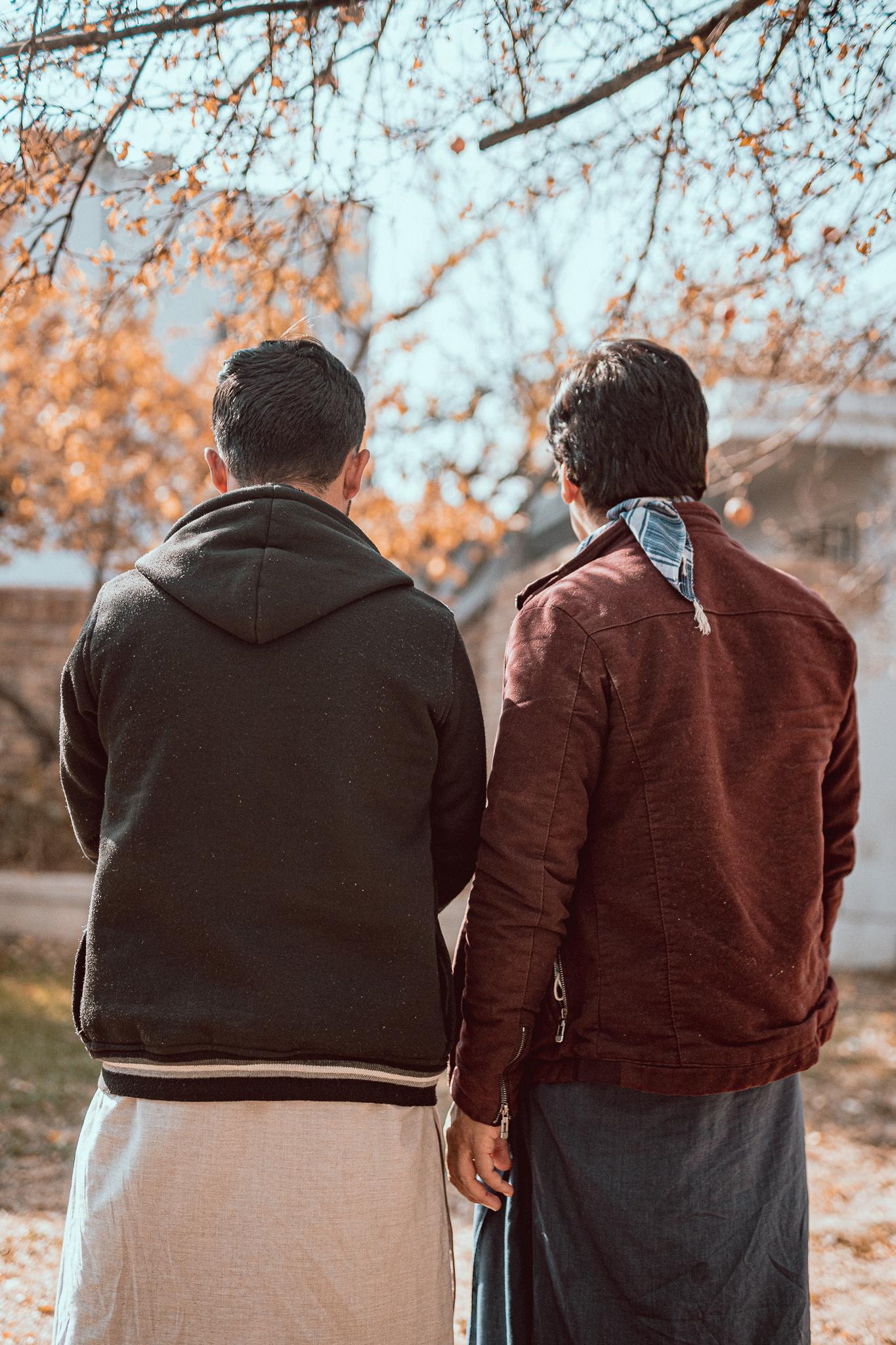
Himmat with his partner Zubair. As a gay couple in Afghanistan they chose not to show their faces in fear of the Taliban and others who may harm them.
For the most part, members of Afghanistan’s LGBT community have had to keep their sexual orientation deeply hidden given the country’s adherence to Shariah Law, previously as an “Islamic Republic” and now under the umbrella of “Islamic Emirate.”
“Our villagers, all of them are in a Taliban world. If they find me, they will take me to the senior Taliban. Then, without any questions or chance, they will kill us,” Himmat – who hails from the staunchly conservative Wardak province and speaks in halting English – pauses, sobbing into his scarf. “They think we are not humans.”
Beside him, Zubair slumps forward, as if bearing the weight of the world.
In rural and isolated pockets, those suspected of being gay have for decades been targeted by vigilantes and even their own family members who punish “perpetrators” in the most haunting way possible. In urban areas, gay men have long been thrown behind bars. Last year’s U.S. State Department report emphasized that LGBT people “continued to face arrest by security forces” and suffered “discrimination, assault, and rape,” including by U.S-backed Afghan police.
“In the previous government, whenever (people) would find out we are gay boys; they would directly bother us. They wanted sex work from us, and if we didn’t do it, they beat us and hurt us,” Himmat continues sadly. “Three years ago, my wife was cut with a knife.”
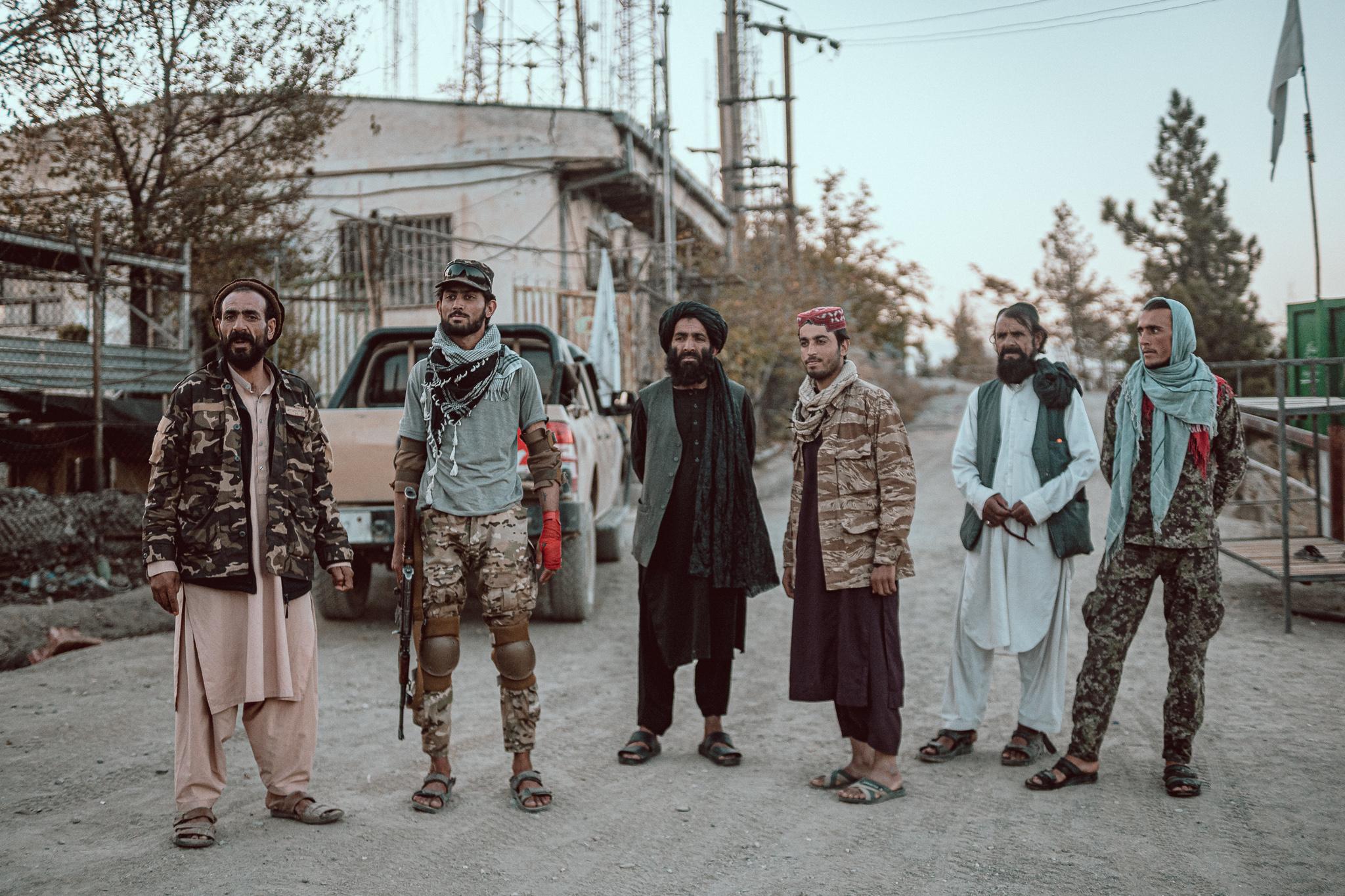
Taliban guards line up for a picture at TV hill, Kabul.
Zubair reveals a long and angry scar on his scalp above his ear, having been viciously attacked by a mob after leaving a dance party in Kabul.
“Those uneducated boys grabbed him and told him, ‘if you don’t have sex with us, we will kill you,” Himmat recalls.
Zubair escaped by fleeing into a neighboring home, where he locked the door and hid away until the threat outside dissipated. But those in the embattled group now fear for the worst.
Under the Taliban’s first rule from 1996 to 2001, the regime criminalized all sexual relations outside the husband-and-wife matrimony, with homosexuality stringently outlawed. In addition, men and women were publicly stoned to death or crushed by a wall as punishment for their “violations” of adultery and fornication.
In pockets that remained under Taliban control, even during the U.S. occupation, residents were sentenced to death by local courts for their “violation” of homosexuality.
After the militant organization took the capital just over three months ago, the couple fled to Jalalabad, Nangahar and banished themselves in a basement – until what little funds they had dried up. All of their belongings – including Himmat’s computer and documents – were stolen when he dared venture out of the room in search of some scraps to eat.
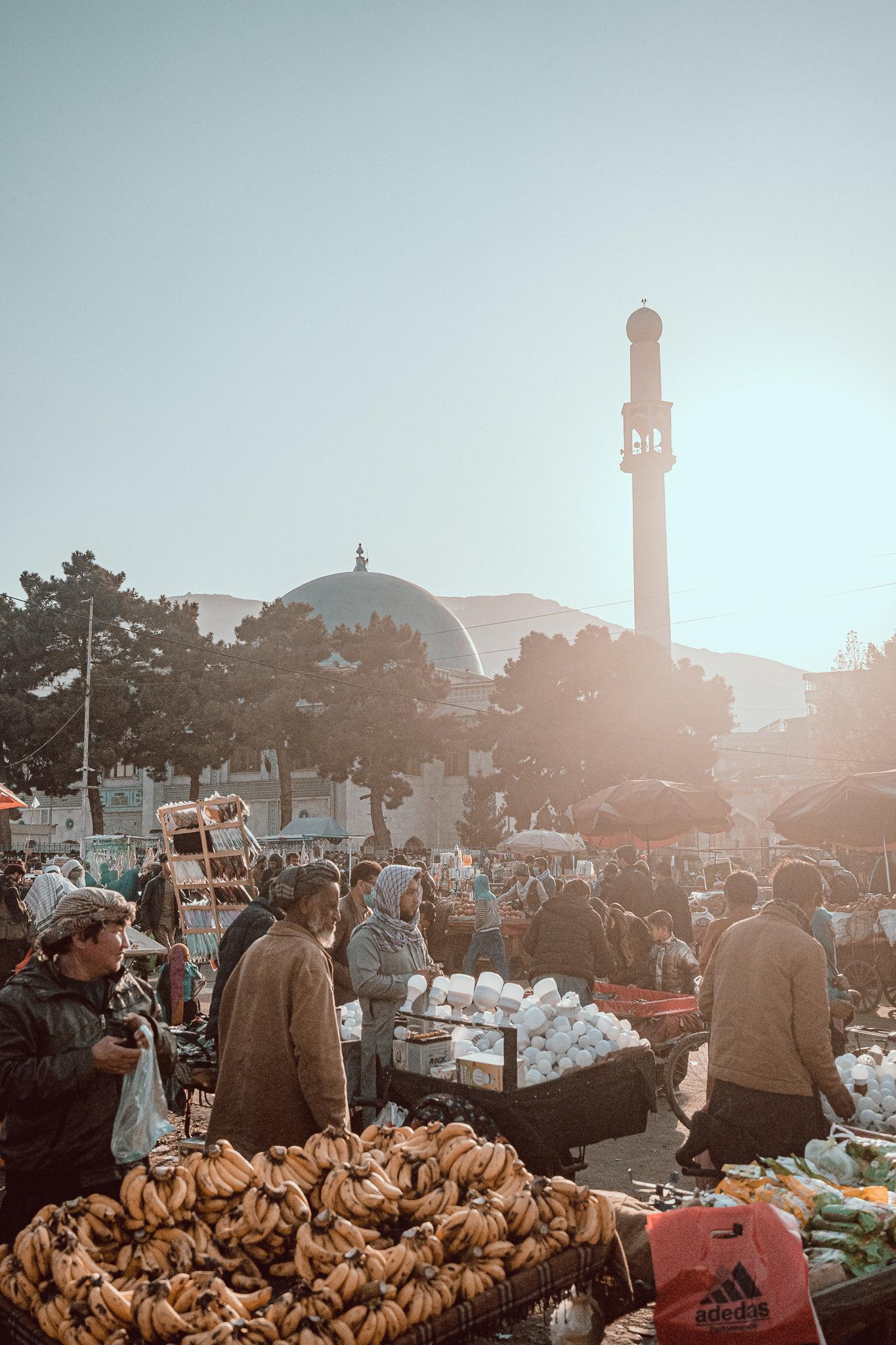
Sar e Chawk bazaar is always packed every day. Pul e Kheshti mosque is in the background.
The Taliban leadership of 2021 is yet to issue any formal decrees regarding same-sex relationships. Yet for the likes of Himmat and Zubair – who were only toddlers when the U.S. first entered their country and usurped the Taliban from power – there is a sense that their fate is a ticking time bomb.
Some NGOs have also pointed out that “kill lists” are floating among the Taliban, explicitly targeting the LGBT+ community. Over the years, gay men have reportedly been baited by various players – conning them to meet for sex work through social media, where they are sometimes raped and slaughtered. There are no laws on Afghanistan’s books protecting the minority group from persecution or harassment.
The couple, who both say they realized they were gay at around age 14, met several years ago while working for an LGBT+ rights group called the Youth Health Development Organization (YHDO). They wed in a small room with just a few gay friends present in 2018.
However, when the COVID-19 pandemic struck last Spring, the men lost their jobs and have been struggling to survive ever since. And now, with a crumbling economy and escalating humanitarian crisis, Himmat says there are no other options for them to survive outside the sex work trade.
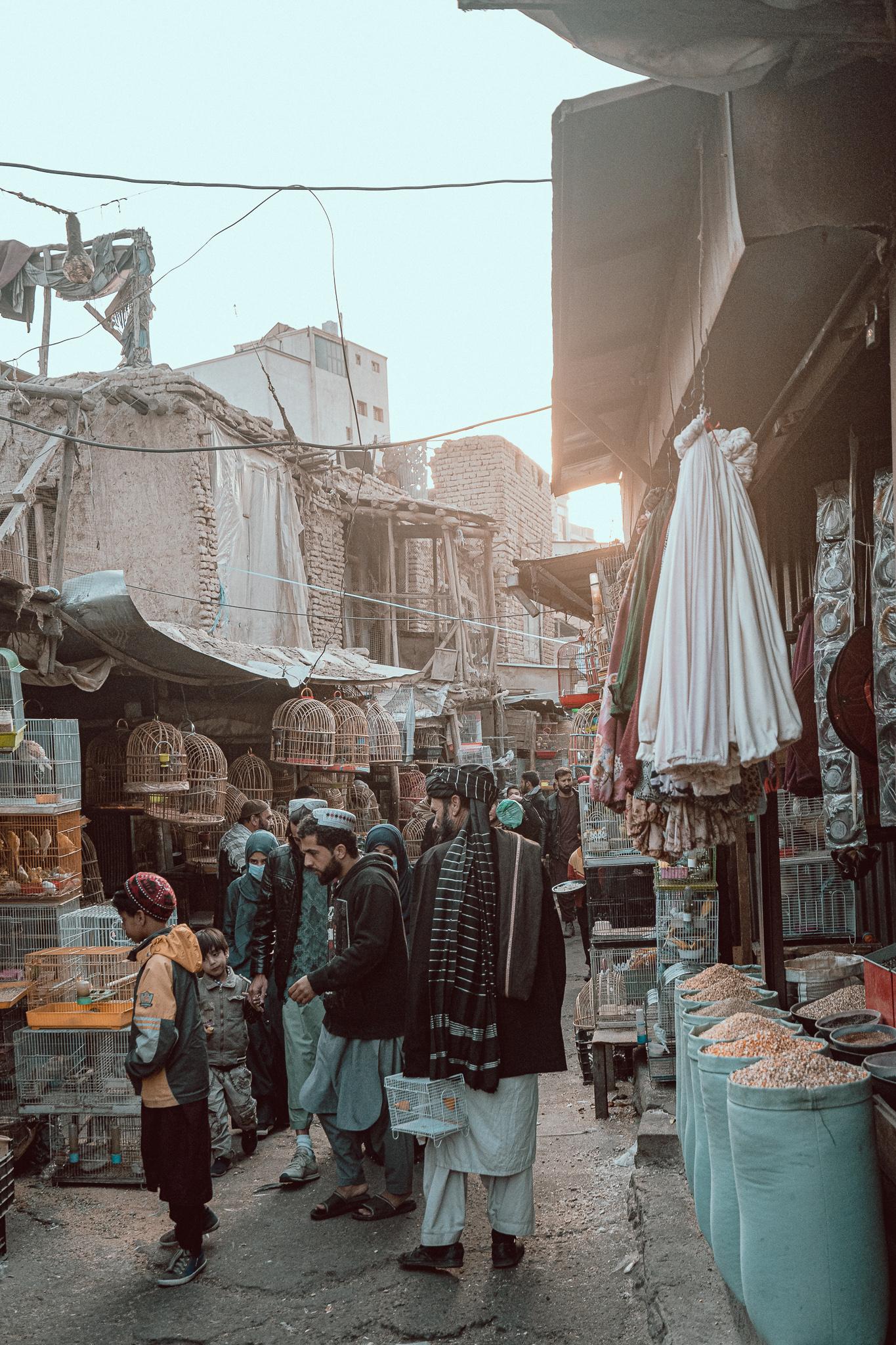
Bird St market is always an interesting place to find fighting birds or exotic parrots.
“For some bread and food, we are sex working. It is not much; maybe we make $20 or $40 per week,” Himmat explains, folding his arms around his body, as if to shield himself for something he cannot bring himself to detail.
He says most of their clients are officials from the former Afghan government, who mistreat and exploit the workers at every opportunity. A day earlier, Zubair was threatened that if he did not immediately respond to the call to “come over,” the ex-official would report him to the Taliban.
“This man is friendly with the Taliban,” Himmat cautions. “He knows them.”
For decades, young boys and men – irrespective of their sexuality – have been targeted by militia members themselves, kidnapped and used as prostitutes for entertainment purposes in a practice known as “bacha bazi.”
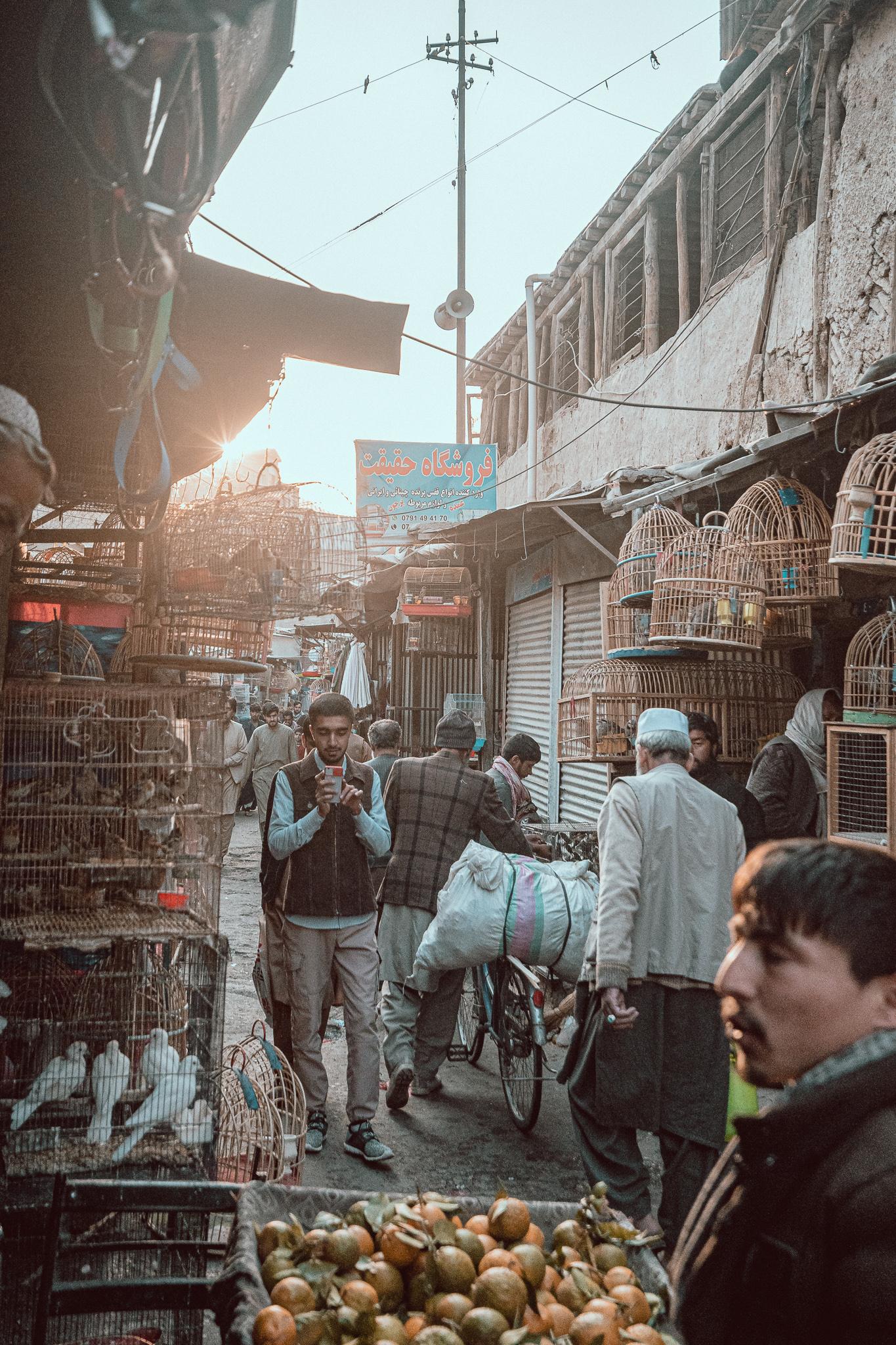
Bird St market.
That is yet another anxiety plaguing the minds of Himmat and Zubair as they search painstakingly for a way out of the country – losing more hope by the day. The men say they tried to leave amid the chaotic U.S. evacuation process months ago, only to be turned away at the gates.
“We went to the airport, I gave the (military) my documents, and I told them, please help us, the Taliban will directly kill us,” Himmat laments. “I talked to the Americans and the British. They just asked me if I had a green card or a visa, but I did not, so I was not eligible to enter the airport.”
He stops mid-sentence, choking back tears with a pinched face and restless hands.
“I cried to them,” Himmat finally stammers.

Moreover, the community has been targeted under the guise of fake evacuation schemes informing them to meet at a Kabul park to be escorted to safety. Only those messages have since been exposed as part of more extensive criminal activity to exploit and potentially harm the desperate and beleagured.
It is painful to watch the melancholy, the fear, the agony.
Indeed, the LGBT community has been fractured in every direction since Afghanistan’s fall. Foreign funding and human rights observers have almost all disappeared. What is perhaps worse, the tight-knit group have lost support from one another.
“We have tried to search for them, so we have someone to share our problems, but we can’t find them. Everyone has escaped or gone into hiding,” Himmat says. “We do not know about them. We do not know if they are okay.”
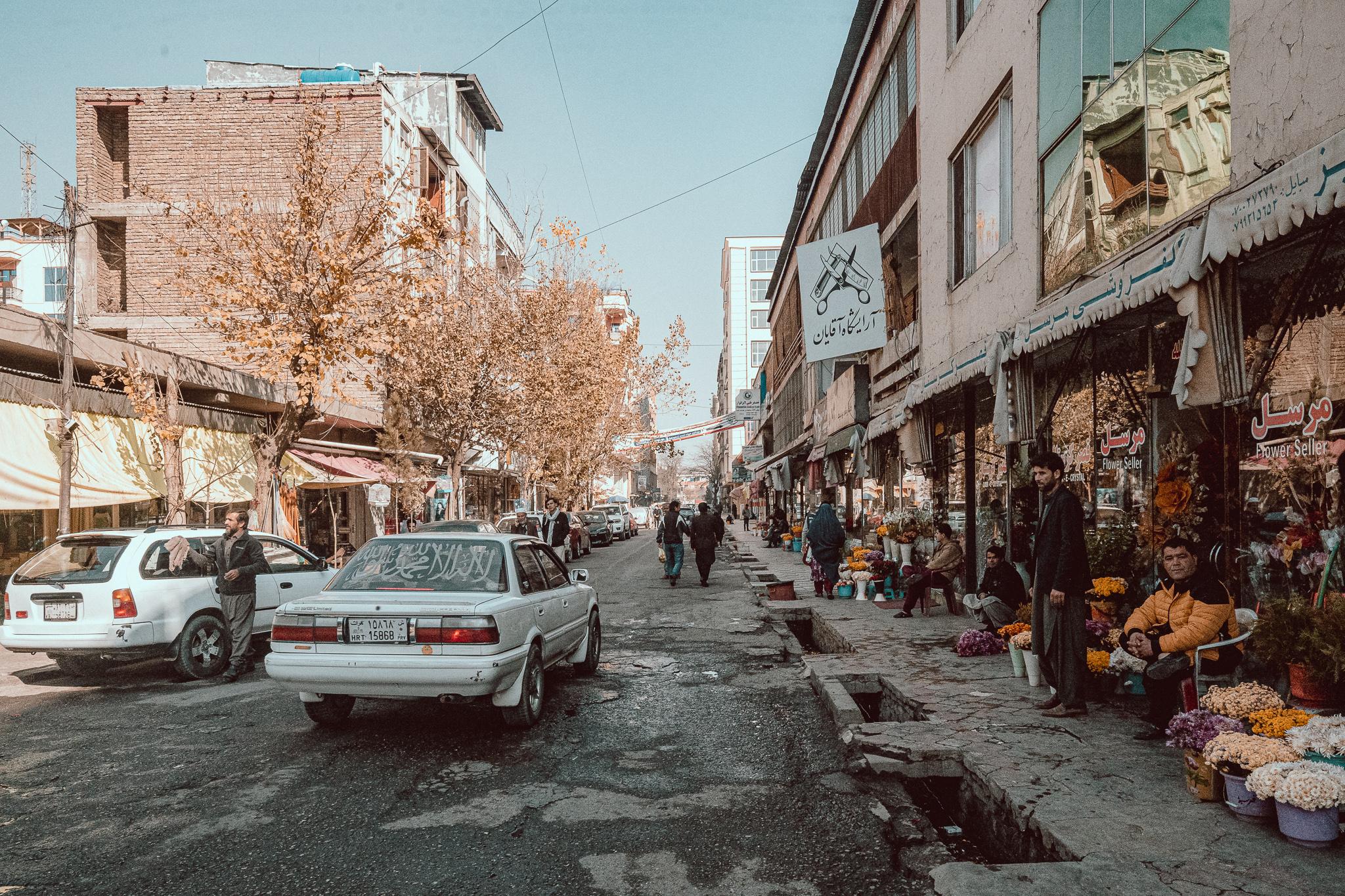
Flower St in Share Nau was an area where the gay community usually lived around.
Before the Taliban’s rise to power, the LGBT community in Kabul stood at around 25 gay men and a handful of women. That number is now unknown.
With a name that translates “brave,” Himmat believes he has done all he can to weather the storm in the land he once called home. His life has amounted to living in a small and squalid room lost in prayer and wrapped in the persistent anxiety of being “found out.”
“If any person, if any government, can give us a chance, we will never go back to Afghanistan,” Himmat adds, his voice rising to a haunting plea. “If you can help us, you will be our best friend for life. We just want an education. We want to be safe. We want to live again.”
